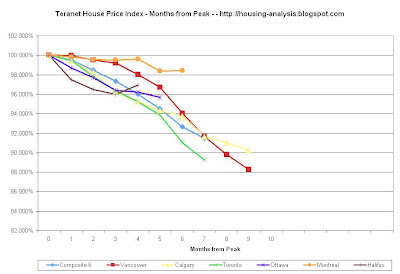Charts to come later. Here is the press release from the
(Surrey, BC) – The Fraser Valley real estate market continued to show signs of rebalancing in April with the number of sales increasing for the third month in a row while the volume of available properties stayed constant. Benchmark prices for detached homes and condominiums also showed increases over the last three months.
There were 1,293 sales processed on the Fraser Valley Real Estate Board’s Multiple Listing Service® (MLS®) in April, refl ecting a 28 per cent decrease compared to the 1,787 sales in April of last year, however, a 29 per cent increase over March sales. At the same time, the Board received 44 per cent fewer new listings compared to one year ago, 2,477 in contrast to 4,458 in April 2008, helping to stabilize the number of active listings in the Fraser Valley at 9,855.
Paul Penner, President of the Board, says current conditions have created one of the best buying opportunities in years. “REALTORS ® have successfully communicated to their sellers to be more realistic with their prices, which is why we’ve seen a 29 per cent increase in sales from March to April.”
Penner also attributes the increase to all-time historically low interest rates and still relatively high inventory for Fraser Valley, although it is dropping rapidly.
“In April, REALTORS® received 44 per cent fewer new listings compared to a year ago and 18 per cent less than we received in March. When supply and demand start to balance out, the effect is that prices begin to fi rm up and that’s exactly what we’re seeing.”
Residential benchmark prices, the value of a ‘typical’ Fraser Valley detached home as determined by the MLSLink® Housing Price Index (HPI), decreased 10.4 per cent compared to April 2008. However, it has increased by 1.8 percent over the last three months. The
benchmark price was $460,229 in April 2009 compared to $513,403 last year.
The HPI benchmark price of Fraser Valley townhouses decreased 11.6 per cent from $333,982 in April 2008 to $295,078 in April 2009. That decrease, however, slowed to 0.1 per cent during the last three months. The benchmark price of apartments also decreased year-over-year by 11.4 per cent going from $260,037 in April of last year to $230,337 in April 2009. Similar to detached homes, the benchmark price for apartments has increased by 4.4 per cent over the last three months.














